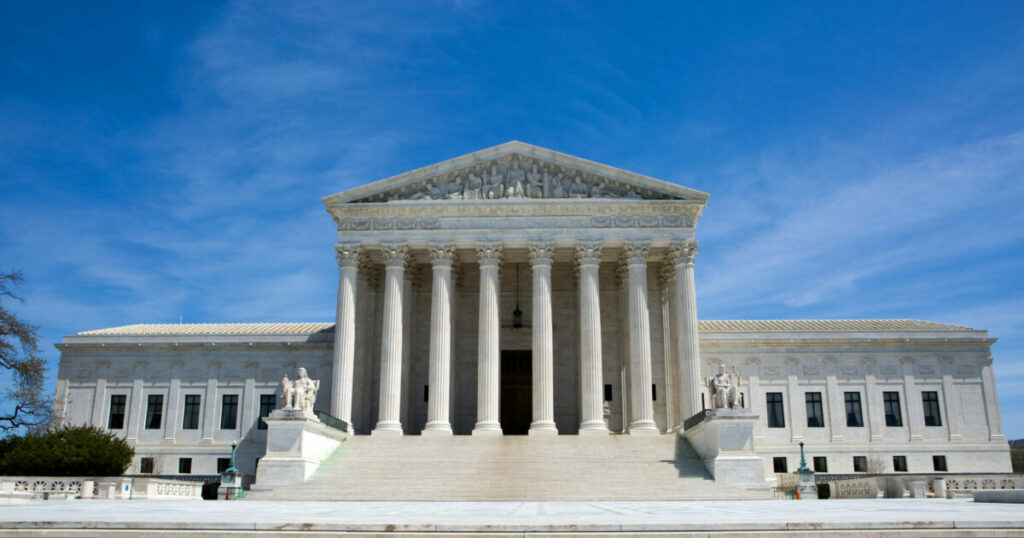by Matthew C. Harrison
The United States Supreme Court ruling, Obergefell v. Hodges, legalized same-sex marriage in 2015 in all 50 states. This significant ruling influenced this nation and the world in many aspects of civilization and life. It placed the law of the land in direct contradiction to reason, natural law and the divinely revealed will of our Creator.
But now, the recent Supreme Court decision Bostock v. Clayton County pits the law and force of the federal government against orthodox Christians. The Civil Rights Act of 1964 forbids employment discrimination on the basis of “race, color, religion, sex or national origin.” In Bostock, the court included the various practices of transgenderism and homosexuality under the word “sex” in the 1964 ruling. This truly preposterous reading of the law inserts meaning into a word which, when the law was made in 1964, was clearly intended to mean male or female. Again, like abortion and gay marriage, the court has usurped the authority of the legislative branch and made up laws by reinterpreting texts to say something they were never intended to say.
We in the Missouri Synod are familiar with this manner of interpreting texts. This was basically the issue in the 1960s and ’70s in our church body. Do the texts of the Bible mean what they say, and are they clear and authoritative as intended by the Divine Author? Or may they be deconstructed and filled with all sorts of political or philosophical meaning at odds with what the texts say?
We believe, based on the clear and unchanging teachings of the Bible, that all human beings are created in the image of God (Gen. 1:26). We believe that all are loved by God (John 3:16). We believe that “all have sinned and fall short of the glory of God” (Rom. 3:23). We believe the sacrificial death and resurrection of Christ is for all (2 Cor. 5:19). We believe that all are sinners. We are thankful that Jesus “receives sinners and eats with them” (Luke 15:2). The Law calls all of us to repentance and to faith in Christ. And we are all to “bear fruit in keeping with repentance” (Matt. 3:8).
Christians want all people to be treated with dignity. The founding documents of this nation guarantee human rights, such as “life, liberty and the pursuit of happiness.” But we are now entering new territory. The fundamental teaching that God has made us male and female; that the sexes are not interchangeable; and that lesbian, gay, bisexual and transsexual uses of our created male and female sexuality are not in accord with divine will is clearly and repeatedly revealed in Holy Scripture (Rom. 1:18–31). The Supreme Court has now ruled against this biblical view.
The only question remaining is what of current law — e.g., the Religious Freedom Restoration Act of 1991, Hosanna-Tabor Evangelical Lutheran Church v. EEOC, or the First Amendment’s “free exercise clause” — will leave us room to operate our churches, schools, universities and institutions according to our Christian doctrine and consciences. What if a male parochial school janitor shows up one day dressed as a woman? What if a non-LCMS professor at one of our universities does so? What if a Concordia university coach has surgery to “change genders” (as if this were possible)? We have established our churches, schools and institutions so that we can inculcate biblical values in our youth and share those values with others. We must not compromise with the world. Jesus said, “If salt has lost its taste … it is no longer good for anything except to be thrown out and trampled under people’s feet” (Matt. 5:13). As Paul teaches in Galatians, the church that cannot say “no” cannot say “yes” either (Gal. 1:6–10). The church that cannot speak the curse of the Law cannot speak the Gospel. Lose the divine Law, and you lose the Gospel too.
Hermann Sasse spoke in 1930 to a context in Germany eerily similar to our own. He was commenting on “governing authority,” based on St. Paul’s Letter to the Romans. “Let every person be subject to the governing authorities. For there is no authority except from God, and those that exist have been instituted by God” (Rom. 13:1). Sasse observed that: “A governing authority which knowingly or unknowingly … allows the norms of the law to be dictated by the so-called ‘legal consciousness’ of the time, sinks to the level of raw power.” “We must obey God rather than men” (Acts 5:29).
And I’m afraid that we are about to see what such “raw power”[1] of the state will mean for biblical, confessional Christians in America today and into the future. We have but one option: “Be faithful unto death, and I will give you the crown of life” (Rev. 2:10).
–Pastor Matthew C. Harrison
[1] 1 Hermann Sasse, “The Social Doctrine of the Augsburg Confession and Its Significance for the Present,” in The Lonely Way, vol. 1 (St. Louis: Concordia Publishing House, 2001), 98.





